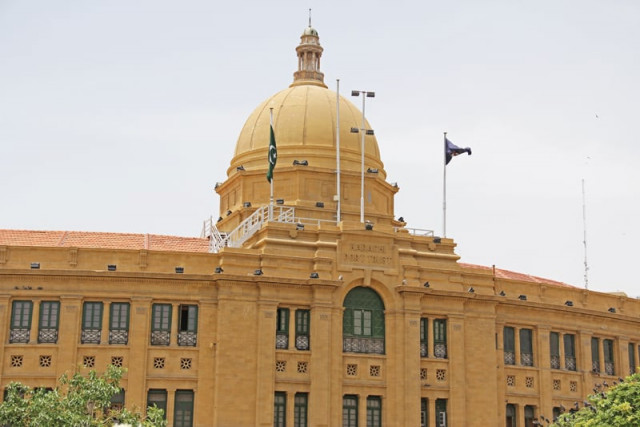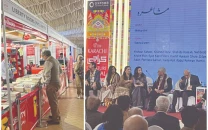Make use of old Karachi to build new Karachi
There is a need to look at cities with respect to their neighbourhoods and understand the workings.

This idea was floated in a research paper prepared by two fourth-year architecture students at Indus Valley School, Ayesha Channa and Rushad Dastoor. Their research looks into the need to ascertain the problems and benefits in reusing old heritage students and evaluating the existing heritage laws in Karachi.
History of heritage laws
The traditions of heritage conservation started in 1881, when the British Lord Viceroy (Sir Edward Bulwer) Lytton appointed Major Cole as a curator for the ancient monuments of the then British India. Later, after the appointment of Lord Curzon as Viceroy, the legislation of antiquities and monuments was introduced.

From this developed the Ancient Monument Preservation (AMP) Act of 1904 adopted by Pakistan in 1947. In 1968, Pakistan passed its own Antiquities Act that retained most of the clauses of the AMP Act albeit in modified form. The act was further redefined in 1975. At the provincial level, operates the Sindh Cultural Heritage (Preservation) Act of 1994.
Despite the evolution of the laws, the ground reality is that the government has yet to take any concrete steps under any of the above acts. The owners of heritage properties that are privately owned have also failed to protect the sites from degradation. In fact, in several cases, they have themselves demolished heritage sites.
Adaptive reuse
One proposed intervention is the ‘adaptive reuse’ of heritage sites. It is a process that adapts a building for new uses and functions while retaining its historic features. For example, an old factory may become an apartment building, an abandoned stone building can turn into a school - similar to the case of Nusserwanjee building which became Indus Valley School, or an old iron bridge can be transformed into a commercial and cultural site, such as the Native Jetty Bridge at Port Grand.
There is a preference to preserve and restore old buildings into their original glory but that is neither always practical nor realistic. This is where adaptive reuse comes in since it allows buildings to retain their historical integrity while still providing the users and occupants with their modern needs.
Benefits of adaptive reuse
Channa and Dastoor’s paper pointed out that adapting heritage offers prospects to local economies through employment services. Environmental benefits are also maximised when carbon dioxide emissions are reduced by simply reusing an existing structure. The greatest benefit is the minimisation of the use of new construction materials.

The reuse of heritage structures in recognised residential precincts can provide opportunities for investment and revitalisation of older community districts. Cultural tourism can be enhanced as historic places provide the authentic experience and ambiance that most tourists seek.
Constraints
Before Karachi can adopt the ‘reuse’ strategy, it needs to overcome certain obstacles. There is a lack of proper authentic research on the history of heritage sites and their existing conditions. This information is necessary before the strategy could be adopted.
Karachi is also witnessing unprecedented growth and urban renewal, combined with the pressure of competing with high value activities and high-rise infrastructure. Before this strategy can be implemented, the areas where most heritage sites in Karachi are located need, however, to get rid of issues with accessibility, traffic, security, etc.
If we develop the imagination and creativity we can stop looking at heritage sites as places that need to be converted into mausoleums, parks or museums. There is a need to look at cities with respect to their neighbourhoods and understand the workings of the various communities that live there at a micro level. Historical buildings should not only be seen as tourist attractions but also public spaces. With the adaptive reuse strategy, entire neighbourhoods can be revitalised.
The writer is an urban planner and runs a non-profit organisation based in Karachi city focusing on urban sustainability issues. He can be reached at fanwar@sustainableinitiatives.org.pk
Published in The Express Tribune, July 14th, 2014.


















COMMENTS
Comments are moderated and generally will be posted if they are on-topic and not abusive.
For more information, please see our Comments FAQ